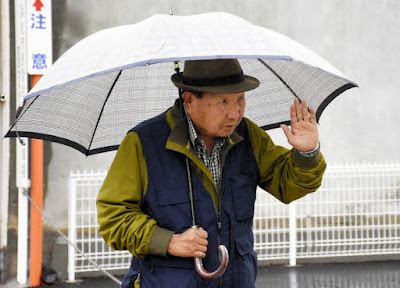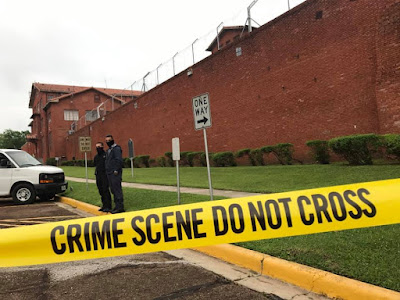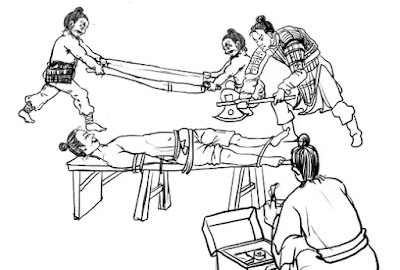SINGAPORE — Singapore's Law and Home Affairs Minister K Shanmugam on Wednesday (May 8) cited local and regional surveys as proof of strong and growing support for using the death penalty on drug traffickers.
He was delivering a ministerial statement in parliament on Singapore’s approach to drug control.
“There is broad support from our population because we have been upfront and open about the rationale, circumstances and safeguards on the use of the death penalty,” said Mr Shanmugam.
Preliminary findings from a Ministry of Home Affairs (MHA) survey conducted in 2023 showed that about 69 per cent of respondents agreed or strongly agreed that the mandatory death penalty was an appropriate punishment for trafficking a significant amount of drugs.
This was up from 66 per cent recorded in 2021, Mr Shanmugam noted, adding that MHA will publish a full report of the most recent survey later this year.
Nearly 77 per cent of survey respondents agreed that the death penalty should be used for the most serious crimes — up from almost 74 per cent two years back.
He also pointed to a National Council Against Drug Abuse survey last year, where almost 91 per cent of respondents expressed support for the country’s drug-free approach.
Beyond Singapore, Mr Shanmugam highlighted a 2021 study conducted in parts of the region where most of the country's arrested drug traffickers have come from in recent years.
It showed that 87 per cent of respondents believed that the death penalty deters people from trafficking substantial amounts of drugs into Singapore.
A similar proportion — 86 per cent — believed that the death penalty makes people not want to commit serious crimes in Singapore.
Of the respondents, 83 per cent also believed the death penalty is more effective than life imprisonment, in discouraging people from bringing drugs in.
"So those who suggest that the death penalty can be replaced by life imprisonment, should look at these figures. The deterrent effects of the two penalties are very different," said Mr Shanmugam.
"It is not easy for us... to decide to have capital punishment as part of the penalties in law. But the evidence shows that it is necessary to protect our people, prevent the destruction of thousands of families, and prevent the loss of thousands of lives."
Mr Shanmugam said the high levels of support were due to Singaporeans' trust in the government to do the right thing, and do right by Singapore.
“So when Mr Richard Branson comes in to argue, he doesn’t realise that we take our duty seriously, we are accountable to Singaporeans, we speak with thousands of them and we know what Singaporeans support,” said Mr Shanmugam.
The British billionaire has been vocal in his views against Singapore's death penalty. In 2022, he made false assertions on alleged racial bias and the treatment of defence lawyers in the case of convicted drug trafficker
Nagaenthran Dharmalingam.
“The vast majority of Singaporeans know and understand the facts and reality, and why the government says the death penalty is necessary," said Mr Shanmugam.
Eighty-seven per cent agreed that Singapore’s drug laws are effective in keeping the country relatively free of drugs.
CHALLENGING THE COURTS
In his speech, Mr Shanmugam described anti-death penalty activists as making “baseless allegations, one-sided claims and half-truths”.
In May last year, Protection from Online Falsehoods and Manipulation Act (POFMA) directions were issued against 10 social media posts and two online articles for containing false statements about the death sentence meted out to convicted drug trafficker Tangaraju Suppiah.
Five parties — The Transformative Justice Collective, The Online Citizen Asia, Andrew Loh, Kirsten Han, M Ravi — had continued to falsely allege that Tangaraju was denied an interpreter during the recording of his statement, said Mr Shanmugam.
"This, despite the Courts’ clear statement to the contrary. A blatant, false attack on the criminal justice system," he said.
Some of the activists have also helped to file "unmeritorious" legal applications on behalf of convicted drug traffickers, often at the last minute, said Mr Shanmugam.
In one case, there were seven post-appeal applications, which were all dismissed by the courts for being without merit, he said.
The last application had a correspondence email address belonging to an anti-death penalty activist, shared Mr Shanmugam.
The Court dismissed that application as a "blatant and ill-disguised application to disrupt the carrying out of the sentence", he said.
In November 2022, parliament passed the Post-Appeal Applications in Capital Cases (PACC) Bill to provide a clear process for such applications.
Mr Shanmugam expects the PACC Act to be brought into force soon. It will seek to safeguard the administration of justice and the rule of law, introducing new requirements to reduce potential delays to proceedings, he said.
"We are now considering what else needs to be done to make sure this new legislation can be properly supported. We will come back to the House if necessary," he added.
"I wish to make it clear to members and Singaporeans, be assured we will take all necessary steps to ensure that this sort of abuse of process is dealt with."
'MULTIFACETED ASSAULT'
During the debate on Wednesday, MP Murali Pillai (PAP-Bukit Batok) asked how Singapore will entrench its anti-drugs policy in younger generations of Singaporeans — particularly what's known as Gen Z and Alpha — who are exposed to positive perceptions of “soft drugs” on social media.
Mr Pillai added that Singapore seems to be “set aside” at international conferences for its anti-drug stance, recalling how he was referred to as having “outlier arguments” during a symposium.
In response, Mr Shanmugam said that there are listed companies around the world that finance non-governmental organisations (NGOs) and publicity that sell the idea that soft drugs are good and harmless.
“If you look at these international conferences, the NGOs which are taking a tough line on drugs are usually poorly financed. Their material is not so attractive whereas on the other side, there are all these glitzy arguments as to why soft drugs (like) cannabis causes you no harm, (that) it’s just something for you to try at school,” he said.
Mr Shanmugam said this “cool factor” is pushed at the young from various avenues such as media, online and friends. “Wherever you turn, it is there and it’s glamorised today … You can’t get away from it.”
He added: “It’s very difficult to stand against this multifaceted assault but I think we’ve done a reasonably good job.”
The minister also agreed with Mr Pillai’s point about Singapore being an “outlier” at international conferences. The country is either met with silence when presenting statistics or told that Singapore’s success cannot be replicated elsewhere, he added.
“I think it can be, but it is not for me to fight the fight in the rest of the world,” Mr Shanmugam said.
“But as long as others don’t tell us what to do and leave us alone to protect our population, then I think that is the best that we can hope for.”











.jpg)
